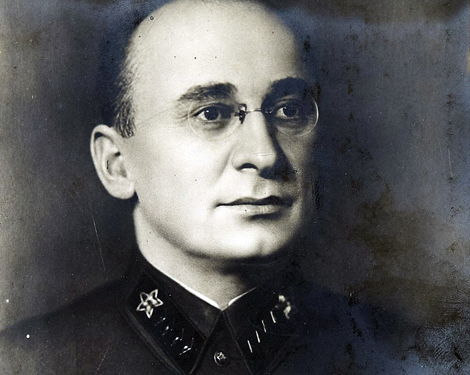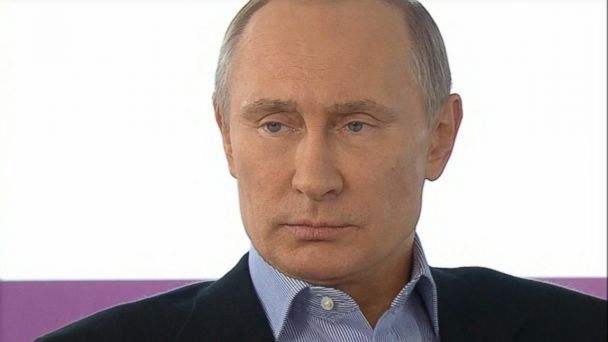In June of last year, Abdel Fattah Saeed Hussein Khalil el-Sisi was elected President of Egypt in a landslide. Before becoming Egypt’s sixth president, Sisi had been the Commander-in-Chief of the Egyptian Armed Forces and its Defense Minister. But more importantly (for our purposes), Sisi is also the former Director of Military Intelligence and Reconnaissance. Many people have written at length about the abilities of former military officers who have made the transition from the battlefield to the political arena (just Googling “was Napoleon a good political leader” brings back over 3,000,000 hits. Eisenhower: almost 3.5 million. US Grant: 70 million – quick answer for Grant: no).
But what about former intelligence professionals? There aren’t very many who have made the transition from the secret world of espionage to the halls of civilian governance, but there are enough for an interesting debate. Sisi has not been in power long enough for me to pass judgment, but at least 8 other men have, and I rank them according to a completely subjective rationale that many of you will not agree with (that’s why God invented comments sections). Some of the criteria are: How well did the domestic economy perform under this person’s rule? How free were his people? Did he leave the country in better shape than when he took power – militarily, economically, culturally? Was he liked by his people? Together these rationale (and some others) led me to the following list:
4. George H. W. Bush, President of the United States, 1989-1993
Intelligence Credentials: Bush was the Director of the Central Intelligence Agency from January, 1976 to January, 1977. He was replaced when Jimmy Carter became president.
The Good:
Signed into law the Americans with Disabilities Act. Worked to increase federal spending for education, childcare, and advance technology research. Reauthorized the Clean Air Act, requiring cleaner burning fuels. Along with Mikhail Gorbachev, signed START I, which would eventually reduce the strategic nuclear arsenals of the US and USSR by 35% (50% of USSR’s land-based ICBMs – an unprecedented reduction in half of an entire class of nuclear weapons). Built a diverse coalition of nations to push Iraq out of Kuwait during Operation Desert Storm. In February, 1991 his approval rating was 89%.
The Bad:
Bush was slow to react to the collapse of communism in Eastern Europe and the USSR, missing an opportunity to reshape the post-Cold War world. He also sat back while the Chinese government brutally suppressed an uprising in Tiananmen Square. His downfall was the economy: In 1992, the year he was up for reelection, the unemployment rate was at 7.8% (the highest since 1984), and 14.2% of all Americans lived in poverty. Just before the election of 1992, Bush’s approval rating was only 37%.
The Verdict:
Bush 41 should be judged less on the strength of the economy than on the missed opportunities of his foreign policy (the President has very little impact on the overall economy – good or bad). Sitting back while the Chinese massacred their people on live TV is hard to excuse, and the fruits of his major foreign policy victory, Desert Storm, were short lived (see: Iraq War, 2003 Version).
3. Lavrenti Beria, Member of Ruling “Troika” after Stalin’s Death, 1953
Intelligence Credentials: Beria was the head of the NKVD (People’s Commissariat for Internal Affairs – the predecessor of the KGB) from just before the beginning of WWII until 1953 (give or take). Most responsible for stealing the “secrets” of the atomic bomb from the US and Great Britain.
The Good:
After Stalin’s death, Beria rebranded himself as an anti-Stalinist reformer and began installing anti-Stalinist policies. He didn’t live long enough to do much, but we know he became deeply disillusioned with Stalin’s ideology. He hinted at a willingness to give Estonia, Latvia, and Lithuania almost complete autonomy. Based on his own writings, and the reaction of his comrades who eventually had him killed, it’s possible that Beria was planning on trading the reunification of Germany for an alliance with the West and massive aid from the United States. It’s altogether possible that if Beria had lived, the Cold War could have ended in the 1950s.
The Bad:
Beria didn’t live long enough to do much damage, but clearly overestimated his power. His aggressive policy ideas convinced the rest of the Soviet leadership (Khrushchev, V. Molotov, G. Malenkov, and N. Bulganin) to conspire against him.
The Verdict:
There’s no question this is a controversial choice so high on this list. Beria was a total monster as head of the NKVD. He is responsible for much of the horror of the Gulags, was notorious for his sadistic enjoyment of torture and rape, and when he died he was the most hated man in the Soviet Union. However, this list was intended to rate these men on their job as a political leader, and Beria had the potential to be one of the most significant reformers of the Twentieth Century.
2. Juan Perón, President of Argentina, 1946-1955, and 1973-1974
Intelligence Credentials: Perón served as military attaché to Chile from 1936 to 1938, and served as a military observer in Italy, France, Germany, Hungary, Albania, Yugoslavia, and Spain before and during WWII. Attachés and military observers (essentially informal attachés) are considered military intelligence positions.
The Good:
During his first term, Perón raised workers’ wages, built hospitals and schools, modernized the economy, and vastly improved Argentina’s infrastructure, while at the same time paying off foreign debts. He also managed to have good diplomatic relations with both the US and the Soviet Union. His type of politics even has its own name: Peronism, which emphasizes nationalism, international political independence, and a strong centralized government. Cristina Kirchner, the current President of Argentina (at least as I am writing this – she’s been having some issues lately), is a member of a party (the Justicialists) that is an offshoot of Peronism.
The Bad:
Perón’s problems began during his second term. His beloved wife, Eva (Evita) died in 1952, an event many historians have linked to Perón’s poor performance afterwards. The economy stagnated, and the working class, which had been his political base, began to lose faith in Perón. After attempting to legalize prostitution and divorce, he was excommunicated by the Catholic Church. His most damning action was allowing hundreds of Nazi war criminals to find safe haven in Argentina after WWII. In 1955 he was ousted in a military coup. When he returned from exile, he appointed his inept third wife Isabel as his Vice-President. She became president after his death and ran the country into the ground.
The Verdict:
As far as historical impact, no one on this list come close to Perón. He changed the political landscape of Latin America in a way that is only bested by Fidel Castro. His political, economic, and societal reforms began the transformation of Argentina into a modern state.
1. Vladimir Putin, President of the Russian Federation, 2000-2008, 2012-present
Intelligence Credentials: KGB officer from 1975-1989. Reached rank of colonel. Director of the FSB (Federal Security Service, a former arm of the KGB), from 1998-1999.
The Good:
During Putin’s first stint as president, real incomes more than doubled, real wages more than tripled, and unemployment and poverty were cut in more than half. The Russian economy grew for eight straight years, GDP increased significantly (about 70%), and Russia regained its position as one of the world’s top ten economies. His energy policy has made Russia into an energy superpower, and his military policy has brought Russia back into the ranks of global powers. His approval rating among Russians was as high as 86% as of February.
The Bad:
Shady elections suggest a return to an authoritarian state, and the government’s relationship with the media and anyone who challenges Putin’s authority is concerning at best. A commodities-based economy is also a weakness for Putin’s Russia, as the energy sector and arms exports dominate revenues (allowing for potential economic catastrophe if prices fluctuate – as they did in the 90s). This also impacts the ability of the Russians to feed themselves: Russia imports almost half its food (about ¾ is some of the larger cities), a considerable strategic vulnerability if general war were to break out. Finally, there is a growing gap between Russia’s rich and Russia’s poor.
The Verdict:
Much of Russia’s economic woes cannot be blamed solely on Putin. Just as in the United States, the President only has so much control over the domestic economy (plus, it would be pretty hypocritical to indict Russia for a growing rich/poor gap). Putin’s return to authoritarianism is alarming for Westerners, but for most Russians (at least 86% at this point) it is either no big deal or even a point of pride. The bottom line is this: Russia in the 1990s was a shell of the former Soviet Union, with a floundering economy and an ineffective military. Today it is back – certainly not to the level of the old Soviet state, but enough to make the world take notice that Russia is again among the world’s great powers.
This is obviously a subjective list, and my rankings are open for debate. Clearly the effectiveness of former intelligence officers in politics is as varied as the effectiveness of former military officers. Some were very good for their countries, while others…not so much.
As I was writing this I was thinking of possible follow-on studies, and one of the best ones I think would be to evaluate how effectively these same ex-spies used their intelligence agencies while they were in political leadership. Were they better at utilizing intelligence than their non-spy peers? An interesting question that would take lots and lots of research…
Where are my interns?
–Dr. Vincent Houghton




